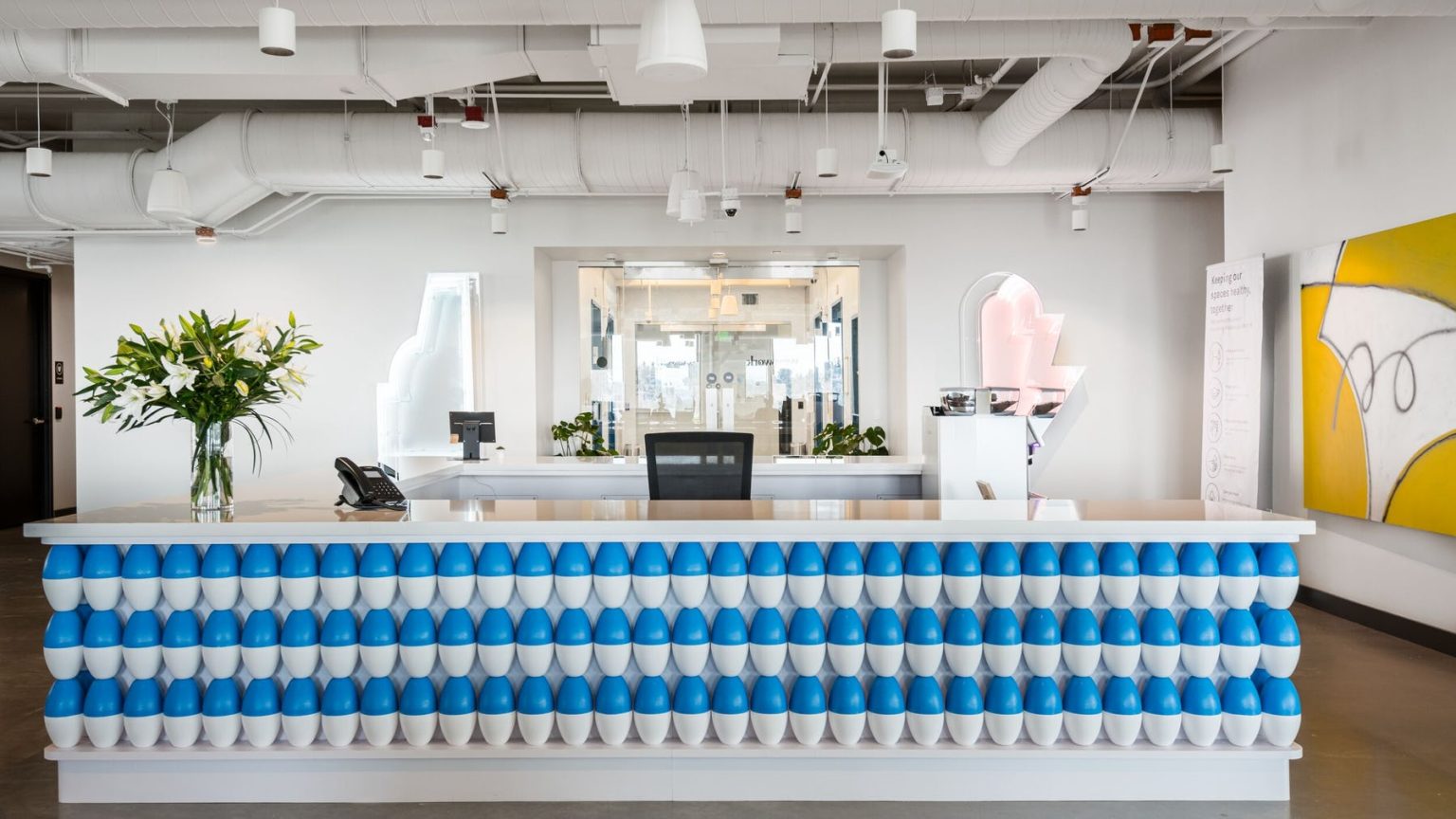WeWork, the once valued co-working giant that filed for Chapter 11 bankruptcy, is making progress in its strategic restructuring as it looks to hold onto another location in Seattle’s Ballard neighborhood. The company has filed a motion to assume its lease in the 15th and Market building, indicating positive negotiations related to its real estate portfolio. WeWork has reported saving over $8 billion in total future rent commitments and has reached agreements on 90% of its buildings globally. The company has already assumed 40 leases across its portfolio and anticipates announcing more in the near future.
One of the locations that WeWork is looking to retain is the Ballard WeWork at 1448 NW Market St., which opened in 2019 and spans 76,500 square feet over two floors. Despite shutting down during the COVID-19 pandemic in June 2021, the space reopened in March 2022. WeWork currently operates seven co-working locations in the Seattle area, with plans for Centrl Office to take over the former WeWork space in the Kelly-Springfield Building on Capitol Hill. Peter Greenspan, WeWork’s global head of real estate, described the Ballard location as one of the most popular in the Seattle area, highlighting an increased demand from hybrid workers seeking workplaces closer to home.
The progress in negotiations and lease assumptions for WeWork comes at a critical time as the company navigates its bankruptcy proceedings. With a focus on reducing future rent commitments and ensuring the continued operation of its locations, WeWork is taking steps to emerge from the restructuring process stronger. The company’s collaboration with real estate partners, such as Martin Selig Real Estate in the case of the Ballard location, reflects a commitment to providing members with high-quality workspaces and solutions. However, all lease assumptions are subject to court approval, underscoring the importance of legal oversight in the restructuring process.
As WeWork works towards securing its place in the Seattle market, the broader co-working industry is poised to continue thriving in various spaces. Despite WeWork’s challenges, the demand for flexible workspaces remains strong, driven by the rise of hybrid work models and changing workplace preferences. Co-working companies like Centrl Office are stepping in to fill the void left by WeWork’s restructuring, highlighting the resilience and adaptability of the co-working sector. By leveraging the popularity of locations like Ballard and responding to the needs of hybrid workers, co-working providers can position themselves for continued success in a post-pandemic environment.
Overall, WeWork’s efforts to assume leases and maintain its presence in key markets like Seattle demonstrate a commitment to sustaining its operations and serving its members. The company’s ability to negotiate favorable agreements with landlords and real estate partners is essential to its success in the restructuring process. By focusing on cost savings, operational efficiency, and meeting the needs of a changing workforce, WeWork is positioning itself for a brighter future post-bankruptcy. As the co-working industry continues to evolve, companies like WeWork and Centrl Office are shaping a new landscape for flexible workspaces, driven by innovation and a deep understanding of changing workplace dynamics.












